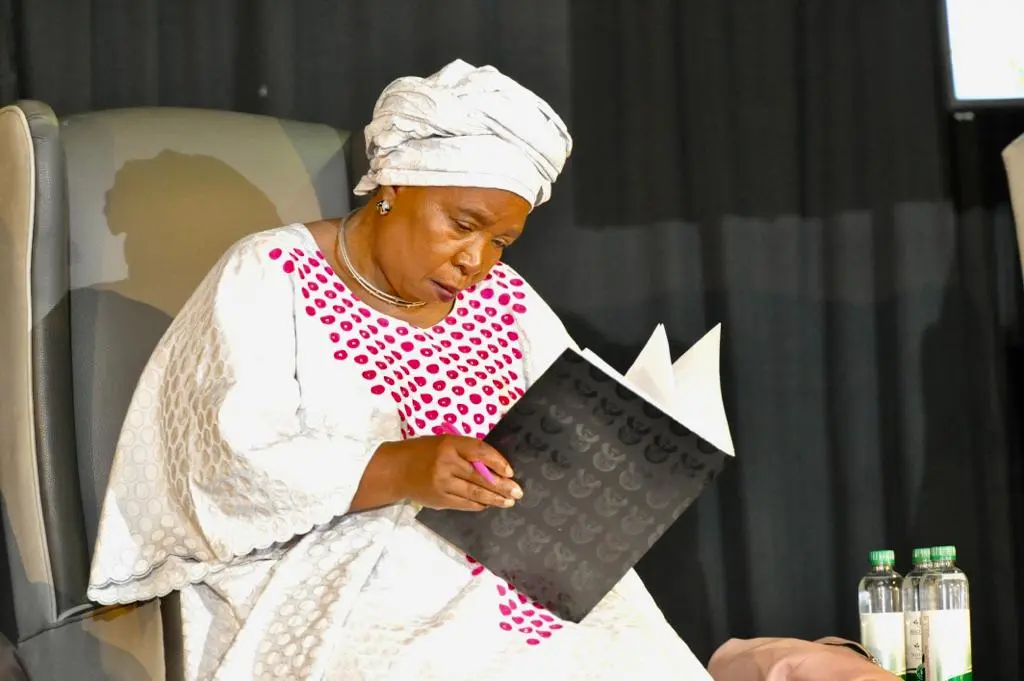NDZ: Discussions ongoing in govt to change the funding model of municipalities
NDZ: Discussions ongoing in govt to change the funding model of municipalities

Cooperative Governance and Traditional Affairs (Cogta) Minister Nkosazana Dlamini-Zuma has called for the funding model of South Africa’s municipalities to change.
On Tuesday, Dlamini-Zuma said discussions were underway in government to ensure that municipal budgets were increased, in order for them to better deliver services to communities plagued by high levels of unemployment and poverty.
“We hope that won’t take long to change the funding model so that we can better address the aspirations and needs of the local people. And as we have always said, it must always be batho pele (people first),” she said.
The minister made the remarks at the national local government summit at the Birchwood Hotel and Conference Centre in Boksburg, east of Johannesburg.
The two-day summit brings together various role players and stakeholders in the local government sector to address the challenges facing the country’s 257 municipalities.
[IN PICTURES]: National Local Government Summit convened by @NationalCoGTA led by Minister @DlaminiZuma underway at Birchwood Hotel & Conference Centre #LGSummit2022 pic.twitter.com/tuqaEWK9c8
— GautengGov (@GautengProvince) September 27, 2022
‘Deeply divided society’
Dlamini-Zuma said the government had the responsibility to support municipalities that were struggling with their revenue collection.
She said when the ANC government first came into power in 1994, it inherited a “deeply divided society” that was spatially split into different socioeconomic conditions and levels of access to municipal services.
Because of this, the minister said some municipalities in the democratic era were struggling to raise their own revenue, but still had the responsibility to provide quality services to communities devastated by poverty.
“As we tried to institute the wall-to-wall municipality system to broaden the reach of the state and ensure that no one is left behind, we did not sufficiently interrogate some of the key assumptions at the time.
“We based the funding model on the assumption that every municipality has a revenue base from which to get its revenue and put together its budget.
“We did not take into account that this wall-to-wall municipality means that we are extending services to people who are indigent [and] there is high unemployment,” Dlamini-Zuma said.
Clean audits vs service delivery
Dlamini-Zuma also criticised some municipalities for focusing on achieving clean audit outcomes at the expense of providing basic service delivery to communities.
The minister said for a municipality to be successful, it needed to ensure that clean audit reports corresponded with service delivery on the ground.
“There are municipalities that get very clean audits, which is very good. But there is a disjuncture between clean audits and service delivery.
“We want both. There must be a clean audit and there must be service delivery. Some of the municipalities cheat and don’t put the poor informal settlements in their plans.”
According to the latest audit outcomes for the year ending June 2021, the Auditor General’s (AG) office found that only 41 municipalities registered clean audits, with the DA-led Western Cape province leading the pack with 22 municipalities.
The AG also raised concerns over the little improvement made in addressing transparency, accountability, performance and the integrity of local government.
To address this, Dlamini-Zuma said the government should focus on building the capacity of municipalities and strengthening the culture of accountability both at a political and administrative level.
“Accountability starts with small things. When you go to a municipality that is accountable and disciplined; everyone has a name tag and you’ll know who you’re talking to,” she said.
The minister added: “I want to say without fear of contradiction that we [local government] are the centre of the universe of government.
“When local government succeeds, the government succeeds. When local government fails, the government fails. We are the sphere of government that is at the centre of everything.”
#LGSummit22 pic.twitter.com/WYiBSBrXUu
— NationalCoGTA ?? (@NationalCoGTA) September 27, 2022
Comments are closed.